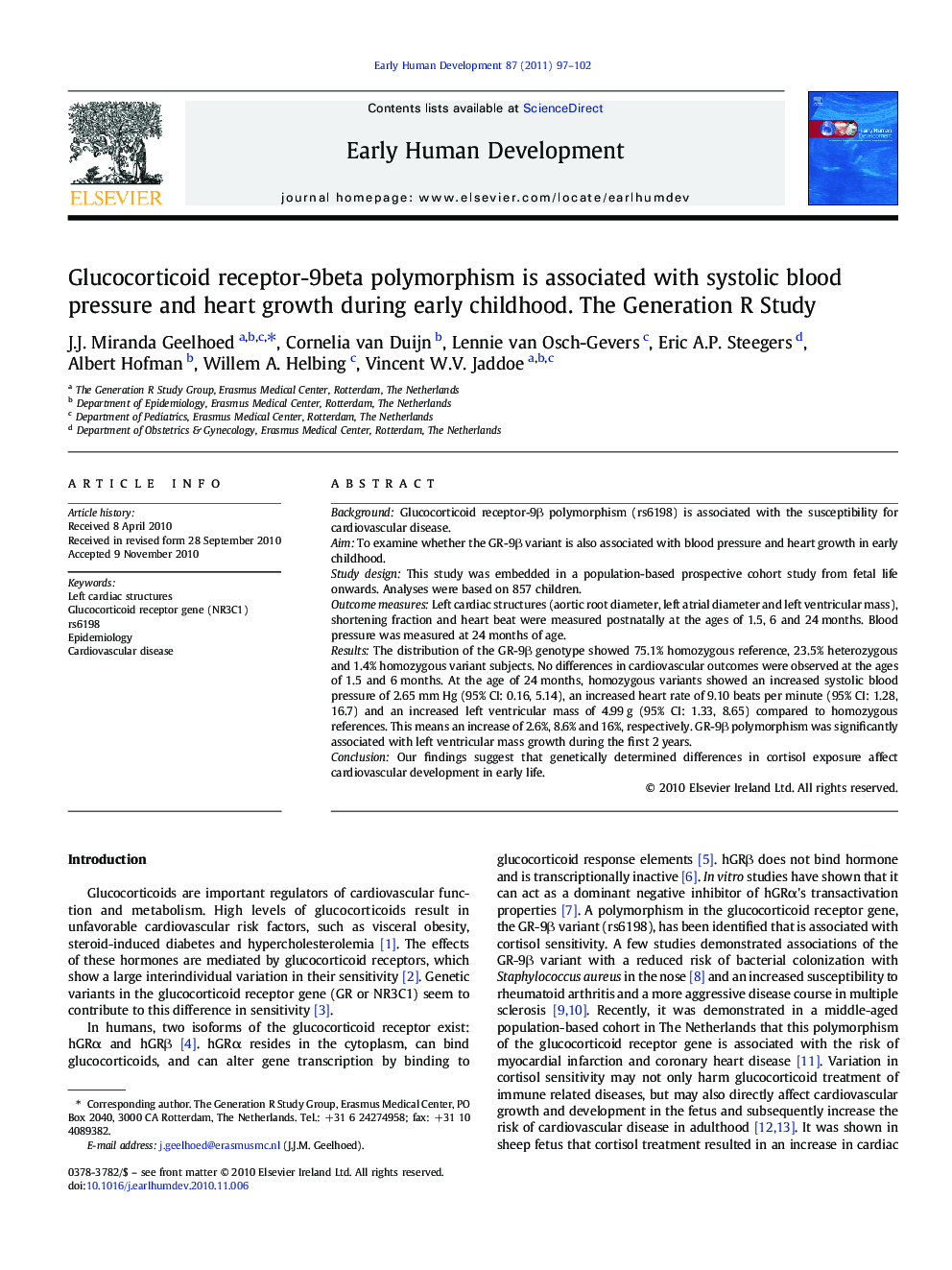| Article ID | Journal | Published Year | Pages | File Type |
|---|---|---|---|---|
| 3917230 | Early Human Development | 2011 | 6 Pages |
BackgroundGlucocorticoid receptor-9β polymorphism (rs6198) is associated with the susceptibility for cardiovascular disease.AimTo examine whether the GR-9β variant is also associated with blood pressure and heart growth in early childhood.Study designThis study was embedded in a population-based prospective cohort study from fetal life onwards. Analyses were based on 857 children.Outcome measuresLeft cardiac structures (aortic root diameter, left atrial diameter and left ventricular mass), shortening fraction and heart beat were measured postnatally at the ages of 1.5, 6 and 24 months. Blood pressure was measured at 24 months of age.ResultsThe distribution of the GR-9β genotype showed 75.1% homozygous reference, 23.5% heterozygous and 1.4% homozygous variant subjects. No differences in cardiovascular outcomes were observed at the ages of 1.5 and 6 months. At the age of 24 months, homozygous variants showed an increased systolic blood pressure of 2.65 mm Hg (95% CI: 0.16, 5.14), an increased heart rate of 9.10 beats per minute (95% CI: 1.28, 16.7) and an increased left ventricular mass of 4.99 g (95% CI: 1.33, 8.65) compared to homozygous references. This means an increase of 2.6%, 8.6% and 16%, respectively. GR-9β polymorphism was significantly associated with left ventricular mass growth during the first 2 years.ConclusionOur findings suggest that genetically determined differences in cortisol exposure affect cardiovascular development in early life.
